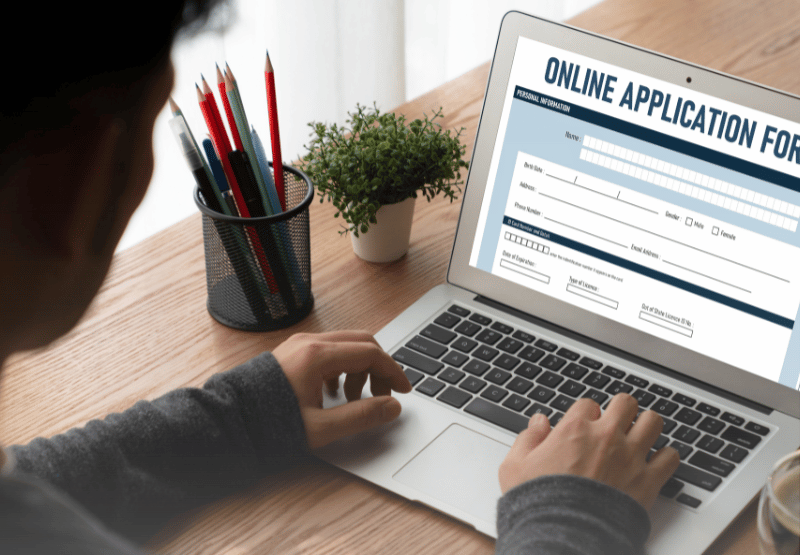Mastering your UCAS UK application in 2025

Key Takeaways
- Complete your UCAS UK application well before the 15 October 2024 or 29 January 2025 deadlines to maximise course availability.
- Budget £28.50 for the entire process and confirm whether you qualify for a fee waiver or other financial support.
- International applicants should prepare transcripts, English-language scores, and proof of funds ahead of visa submission.
- A structured five-step approach—register, fill details, craft your statement, add references, and submit—keeps tasks manageable.
- Avoid common errors such as generic statements and missed reply windows to protect your admission chances.
Securing a place at a UK university starts with mastering your UCAS
UK application, the single online doorway to more than 35,000 undergraduate courses. Completing it accurately and on time positions you for offers, scholarships, and a smoother visa journey.
What is a UCAS UK application?

A UCAS UK application is the standardized digital form that every prospective undergraduate completes to study at a UK university. It captures your personal details, academic history, course choices, personal statement, and references, routing everything through a central system so admissions tutors evaluate candidates on a level field. Because the platform links directly to universities, it also manages offer notifications and reply deadlines, ensuring that you, your chosen institutions, and national regulators always share the same data. Completing the form correctly is therefore not just paperwork; it establishes your official academic profile and triggers supporting steps such as accommodation allocation and visa sponsorship letters.
The service attracts students from more than 200 territories each cycle, so competition can be intense. Submitting a polished, evidence-based application—supported by a strong personal statement and timely references—can elevate you above equally qualified applicants. That is why understanding every section, cost, and deadline matters long before you press “Submit.”
“Submitting a polished, evidence-based application elevates you above equally qualified applicants.”
Key UCAS Application Dates for 2025 Entry
Missing a deadline can cost you a full academic year, so track each milestone closely.
- 15 October 2024 (18:00 UK time) — Deadline for medicine, dentistry, veterinary science, and all courses at Oxford and Cambridge.
- 3 September 2024 — First day you can officially send your form once all sections, references, and payments are complete.
- 29 January 2025 (18:00 UK time) — Equal consideration deadline for most undergraduate programs, meaning universities review applications received by this point without first-come bias.
- 26 February 2025 — UCAS Extra opens, allowing applicants who used all five choices and hold no offers to add an extra course.
- 30 June 2025 (18:00 UK time) — Final date for new applications before Clearing; submissions afterward go straight to Clearing.
- 5 July 2025 — Clearing vacancies become visible, letting you target available spots immediately.
- 24 September 2025 — Last date for 2025-entry applications. After this point universities focus on 2026.
Planning well ahead of the earliest cut-off—especially the 15 October specialist deadline—gives you breathing room to refine your personal statement, secure references, and verify transcript uploads. Treat each date as a project checkpoint, locking completed sections before moving to the next, so any last-minute glitches won’t derail your submission.
Understanding UCAS Application Fees And Costs

The fee for a 2025 UCAS UK application is £28.50, covering up to five course choices in one transaction. This flat cost replaces the old single-choice discount, so even if you pick a single program, the fee remains the same. Applicants who received free school meals during secondary studies can request an automatic waiver, a valuable saving if you also plan IELTS or portfolio expenses.
Remember that Clearing, UCAS Extra, and course swaps do
not carry extra charges; the one-off fee follows your application throughout the cycle, keeping budget forecasts straightforward. However, conservatoire auditions, entrance tests (such as UCAT or LNAT), and visa processing sit outside UCAS and incur separate costs. Build those line items into your financial plan early, especially as overseas payments may involve currency spreads and bank transfer fees.
UCAS Application Requirements For International Students
Meeting academic standards is only half the battle; you must also prove eligibility to study and live in the UK.
- Official transcripts: Certified secondary school and, if applicable, post-secondary records translated into English.
- Proof of English proficiency: IELTS, TOEFL iBT, or Pearson PTE results that meet course-specific minimums.
- Personal statement: A 4,000-character narrative linking your achievements, motivations, and future goals to each chosen program.
- Academic reference: One teacher or counsellor recommendation, uploaded through the UCAS referee portal.
- Valid passport: A scan of the biometric page, ensuring the passport will remain valid for the duration of your studies.
- Financial documentation: Bank statements or scholarship letters showing funds for tuition and living costs, required later for the Student Visa.
- Portfolio or audition materials: Mandatory for architecture, art & design, music, or performing arts programs.
Gathering these items early prevents delays once universities issue Conditional Offers that often carry tight verification windows. You also minimise the risk of visa refusals caused by last-minute document scrambles.
Step-by-Step Guide to Completing your UCAS Application

Register and Customise Your UCAS Hub
Create a UCAS Hub account, choose the 2025 cycle, and set up security questions. Customise the Hub dashboard so deadlines, to-do items, and live chats sit front and centre, keeping daily progress visible.
Enter Personal Details and Course Choices
Populate your legal name exactly as on your passport, list up to five undergraduate courses, and arrange them in order of preference—universities won’t see the ranking. Double-check every course code and campus to avoid accidental enrolment in January rather than September intakes.
Draft and Paste Your Personal Statement
Write your statement in a separate document to monitor the 4,000-character limit, then paste it into the application form. Highlight your academic strengths, extracurricular achievements, and career vision, tying each to the learning outcomes of your courses.
Secure and Add Your Reference
Nominate a referee early, then use the “request reference” feature so your teacher uploads their letter directly. Track reference status in the Hub; the application cannot be submitted until this section shows “Completed.”
Pay, Review, and Submit
Settle the £28.50 fee online, skim every page for spelling errors, and click “Submit.” You will receive a 10-digit Personal ID confirming successful transmission, which you should store securely for visa paperwork and future correspondence.
Common Mistakes to Avoid in your UCAS Application
- Missing the 15 October specialist deadline: Oversight here blocks applications to Oxford, Cambridge, and most medicine programs for an entire year.
- Copy-pasting generic personal statements: Admissions tutors spot templated language quickly and may reject you for lack of originality.
- Using informal email addresses: An unprofessional handle can undermine a strong academic profile.
- Under-estimating space for qualifications: Leaving out predicted grades or incomplete modules creates gaps that admissions officers must query.
- Uploading unofficial transcripts: Screenshots without stamps or signatures trigger document verification delays.
- Relying on automated spell-check alone: Contextual errors slip through and weaken your academic credibility.
- Forgetting to reply to offers: Failure to accept or decline within the UCAS reply window results in automatic withdrawal.
Preventing these pitfalls guards your application’s credibility and keeps the admissions timeline on track.
Tips for a Successful UCAS Application

Start Early and set Micro-Deadlines
Begin drafting at least six months before your target UCAS application due date, dividing tasks—personal statement, reference follow-up, transcript translation—into weekly goals to maintain momentum.
Align Evidence with Course Outcomes
Study each module list and graduate destination page, then weave matching achievements into your personal statement. Concrete alignment signals genuine commitment, lifting you above applicants who mention vague enthusiasm.
Proofread Through Multiple Lenses
Read the final form aloud, ask a friend to review the tone, and use a professional-style grammar checker. This three-stage approach catches stylistic, factual, and typographical errors that a single method might miss.
“Treat each date as a project checkpoint, locking completed sections before moving to the next.”
What Happens After Submitting Your UCAS Application?
Universities review your file against academic thresholds, personal statement themes, and interview requirements, then post decisions (Offer, Conditional Offer, Interview Invite, or Unsuccessful directly) in the UCAS Hub. As offers arrive, you choose one Firm and one Insurance option and satisfy any conditions, such as final exam grades or English-language scores.
After decisions are locked, Student Visa preparation begins. You receive a Confirmation of Acceptance for Studies (CAS) number, pay the Immigration Health Surcharge, and book biometrics. Successful visa issuance triggers accommodation allocation and airport pickup arrangements, putting you on course for enrolment week.
University applications are more than just paperwork—they’re the key to unlocking your academic future. At
Uni-UK, we simplify the process, providing expert support at every step to help you secure your ideal university placement.
FAQs
How many times can the UCAS UK application be edited after submission?
You cannot change course choices after the first submission unless you use UCAS Extra or Clearing, but you may update contact details any time in your Hub.
What is the deadline for UCAS applications if I want to start in 2026?
The UCAS application deadline 2026 early entry date will fall in mid-October 2025, while the equal consideration date is expected to sit near late January 2026; exact confirmation appears on UCAS each May.
How much does a UCAS application cost for international students?
The fee for a UCAS application is £28.50 for all applicants, and there is no separate surcharge for overseas students; visa fees are handled outside UCAS.
Which UCAS application dates matter most for art and design courses?
Many art and design programs accept later submissions until 24 March 2025, yet competitive schools still recommend applying by 29 January 2025 to guarantee portfolio review slots.
Does missing the UCAS application deadline for 2025 entry mean I must wait a year?
Not necessarily; you can still enter Clearing from 5 July 2025 onward, provided vacancies exist, although popular disciplines may have filled by then.
Blog






